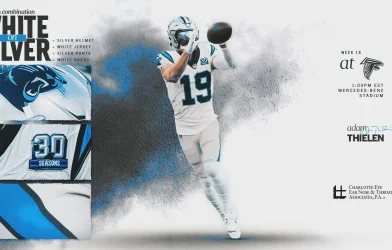On Thursday, Remedy Entertainment announced it would soon patch Alan Wake to cut David Bowie’s “Space Oddity” from the game’s credits due to licensing issues. Music has been a problem for Alan Wake before: Remedy had to pull the entire game off Steam, Xbox Games Store, and other platforms from May 2017 to October 2018 as the licenses were renegotiated. And it’s not only a Remedy problem. It seemingly happens over and over again: Sega and Obsidian Entertainment’s Alpha Protocol, Rockstar Games’ Grand Theft Auto: Vice City (Grand Theft Auto 3’s PlayStation 3 launch was delayed, too, over music clearance), 2K Games’ Spec Ops: The Line, Sony Interactive Entertainment’s upcoming Star Wars: Knights of the Old Republic, Activision’s Tony Hawk Pro Skater HD, and plenty more have all had music licensing issues.
People who are plugged into the video game industry hear about games being pulled from sale for these reasons all the time — something that will likely continue into the future. But what about other sorts of media? On Polygon’s Alan Wake news story, commenter VeronicaTriumphant asked a poignant question: “Why does this keep happening to games but it never seems to happen to movies?”
The answer there is complicated, and it’s not the same for all movies, TV shows, or video games. Broadly speaking, however, it does happen to other forms of media. Jeffrey Cadwell, intellectual property attorney with law firm Dorsey & Whitney, told Polygon that it’s more common with older TV shows that hadn’t considered licensing agreements for, say, streaming platforms like Netflix, which didn’t exist when the shows were created.
“For example, I know Bosom Buddies (the old Tom Hanks show) originally had a song by Billy Joel as the theme, but on DVD and now in syndication, it uses a separate theme,” Cadwell said. “Bringing it more current, same issue with Dawson’s Creek. The key when negotiating music licenses is to try to obtain all rights in perpetuity, so you do not have to go back in the future regarding format changes or reuse fees.”
A Vox report from 2015 said most modern TV shows now negotiate for “all possible uses of the song — initial broadcast, reruns, syndication, DVDs, international, and online streaming.” That’s why we don’t see too many problems with shows created after the rise in popularity of streaming platforms.
Usually, producers for these shows will replace the music if needed, like in the case of Dawson’s Creek — the iconic theme song, Paula Cole’s “I Don’t Want to Wait,” was replaced on streaming services with Jann Arden’s “Run Like Mad” due to licensing issues. But that example itself is also a lesson in how complicated this whole thing can be: Arden’s “Run Like Mad” was actually written for Dawson’s Creek and the producers’ original pick for the show’s theme, according to the Huffington Post. Warner Bros. executives ended up changing their minds later, adding in “I Don’t Want to Wait” as the theme song when the show debuted. The deal had to be renegotiated some years later, which is when Dawson’s Creek lost “I Don’t Want to Wait.” Instead of paying more money to Cole, they put Arden’s song back in. When Dawson’s Creek hit Netflix in 2020, fans revolted over the removal of the iconic “I Don’t Want to Wait,” Billboard wrote in 2021. In 2021, Dawson’s Creek producers made a new deal with Cole; she re-recorded the song so it’s licensed through her and a re-recorded master, not Warner Records. And so, the song returned.
Movies are perceived to have a longer shelf life than video games, or at least they were in the past. Movie producers were more likely to get a license in perpetuity for that reason. Like in TV shows and movies, the video games that do get delisted for music licensing issues are often older ones that publishers didn’t expect demand decades later. Instead of a perpetual license, video games are often issued “a more limited license,” Schacht said, that requires the maker to “to come back to renegotiate – and pay – for additional rights when they need them.”
If publishers and studios can’t — or don’t want to — renegotiate, they’ve got to pull their game, or patch out the music. “The infringer could be on the hook for a lot of money and be unable to use the music” if they keep using music with expired licenses, Schact said.
If you’re looking for the TL;DR, here it is: Movies and TV shows do have similar licensing issues as video games, but it usually impacts older shows that didn’t secure licenses for home distribution or streaming. You may not hear about it as often, because shows come and go from streaming services all the time. But you’ll definitely recognize it next time you load up Alias on Disney+, only to learn all your favorite sequences have new songs.







Comments are closed